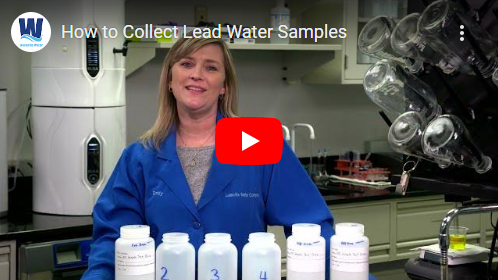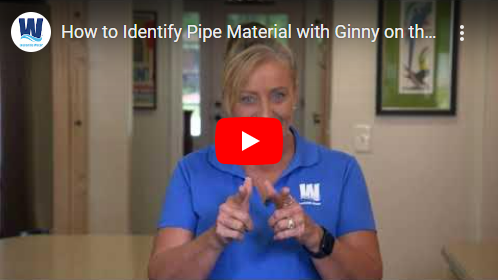Home / Your Water / Water Quality / Lead Awareness
Lead Awareness

Protecting public health is at the core of what we do at Louisville Water Company. Louisville’s drinking water is rated as one of the highest in the United States. Eliminating the risk of lead getting into drinking water is a shared responsibility between Louisville Water and you.
Louisville’s drinking water does not contain lead when it leaves our treatment plants. The risk for lead to enter the drinking water comes from corrosion of plumbing materials made with lead. This includes pipes buried in the ground, home plumbing, solder, and fixtures. Until 1950, it was common to install lead and galvanized service lines.
As part of ensuring excellent water quality, Louisville Water implements corrosion control strategies to maintain high-quality water as it travels through pipes. Louisville Water’s scientists also conduct over 200 tests a day to ensure Louisville Pure Tap® is safe.
Louisville’s drinking water meets all Environmental Protection Agency (EPA) standards for lead under the Lead and Copper Rule. Lead is rarely found in source water.
Wait…What’s the Lead and Copper Rule?
With the Lead and Copper Rule, sampling occurs at the customer’s tap in sites with known lead and galvanized service lines or copper with lead solder. Louisville Water’s results are below the EPA Action Level. More detailed information about the overall water quality of Louisville’s drinking water may be found in the Annual Water Quality Report.
Importance of Minimizing Risks
Lead is a toxic metal that was used for decades in products found in and around our homes. Swallowing lead paint chips or breathing in lead paint dust presents the biggest risk of exposure. Ingestion can cause health concerns for people of all ages, particularly pregnant women, infants, and young children. In children, low exposure levels are linked to learning disabilities, behavioral problems, and other issues. No amount of lead is safe.
Maintain Optimal Water Quality
If you want to minimize potential exposure to lead in drinking water, follow these simple steps:
- Run cold water for a minimum of five minutes after water has been stagnant for more than six hours.
- Allow the cold water line to run for a minimum of five minutes before using the water for cooking or drinking. Only use cold water for cooking or preparing baby formula.
- Never use hot water for consumption.
- Consider purchasing a filter certified by NSF for lead reduction.
- Remove any faucet aerators, soak in vinegar for 15 minutes, and clean any accumulated particles. The aerator is at the tip of most faucets and can usually be screwed on and off.
- If work is performed on any lead or galvanized lines, we recommend a 60-minute high- velocity cold water flush from your bathtub. Louisville Water will provide a pitcher filter and recommends you use that for six months after replacement. Discard three cycles of ice from automatic machines, clean aerators, and flush your lines daily for 5 minutes as described above.
Replacing Lead Service Lines
The service line is the pipe that brings drinking water from the water main into your home. Louisville Water installs a service line from the water main and then the customer installs one on their property. Years ago, Louisville Water and plumbers used lead and galvanized pipes and we need to replace those. Louisville Water has proactively replaced thousands of lead service lines it installed. Older home (those typically built before 1950) may still have a lead or galvanized service line and as we find these older service lines, we actively replace them. At the same time, we’re working to identify all privately owned lead and galvanized service lines and replace those free of charge. That’s where we need your help.
Determine Your Service Line Material
First, see if we have information on the type of service line material on your property here:
Service Line Material LookupParticipate in our Private Outdoor Lead and Galvanized Service Line Replacement Program
If you have a lead or galvanized service line, we want to help! Louisville Water will pay to replace it free of charge.
If you’d like to take advantage of the replacement program, submit this form, call (502) 569-0898 or email leadproject@louisvillewater.com and someone from Louisville Water will follow up with you.
Test your water for lead
We will send a sample kit through the mail. You will collect samples and alert us when you’re finished. Our team will pick them up, analyze the samples, and follow up with results.



